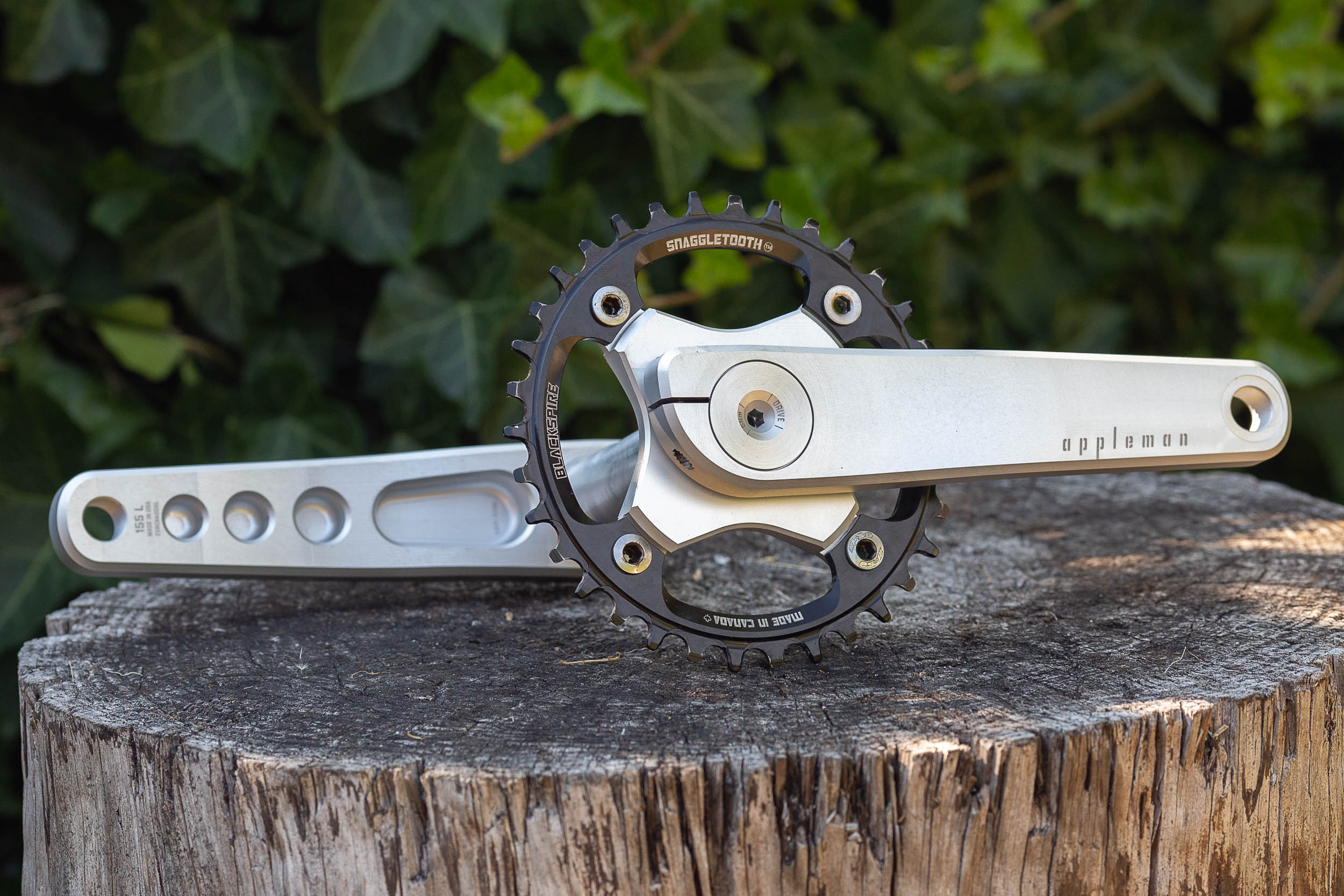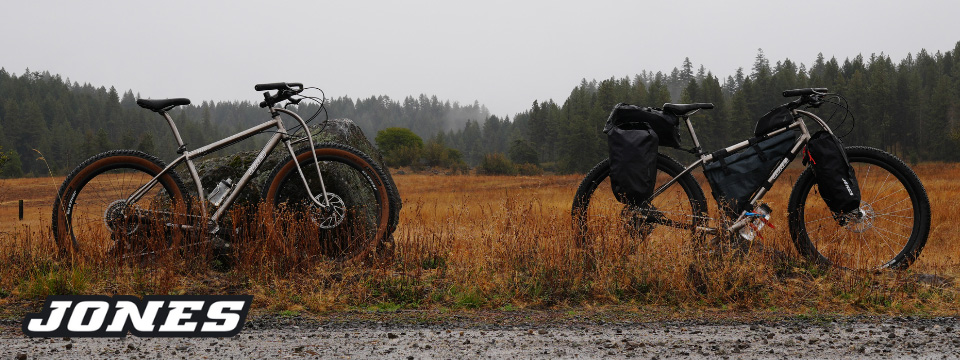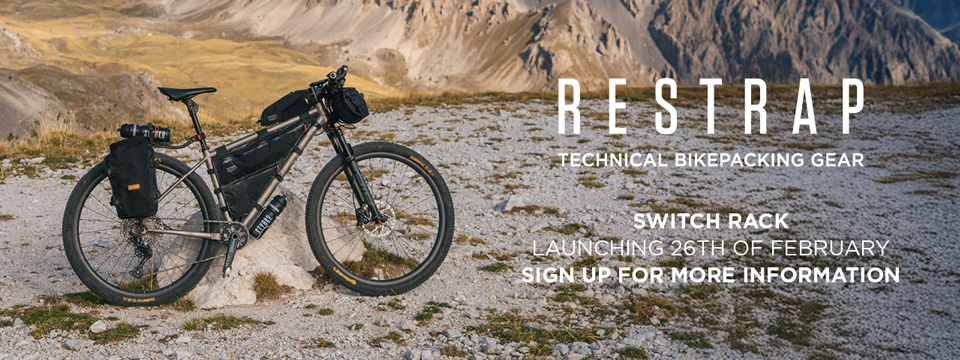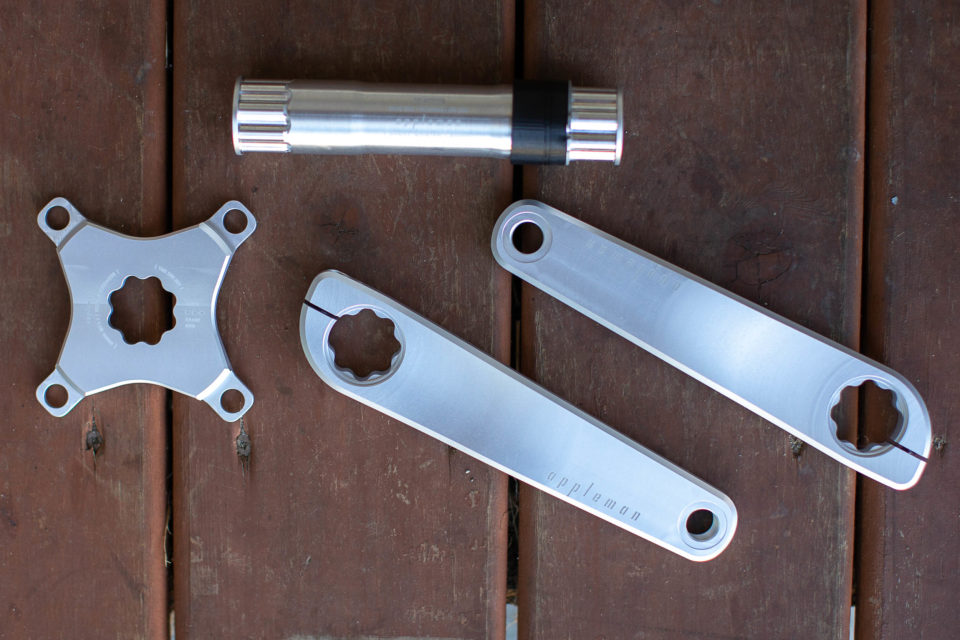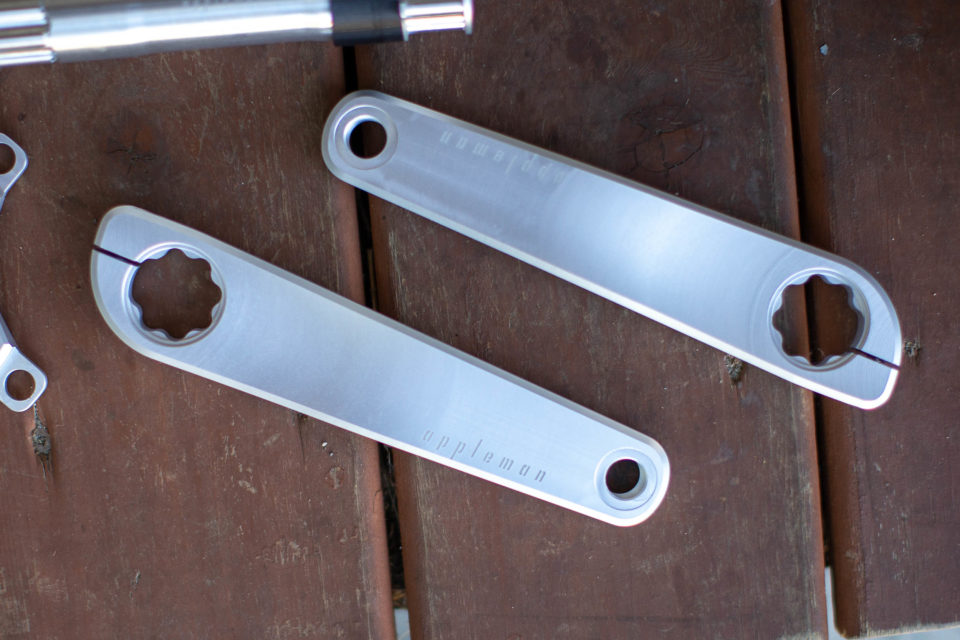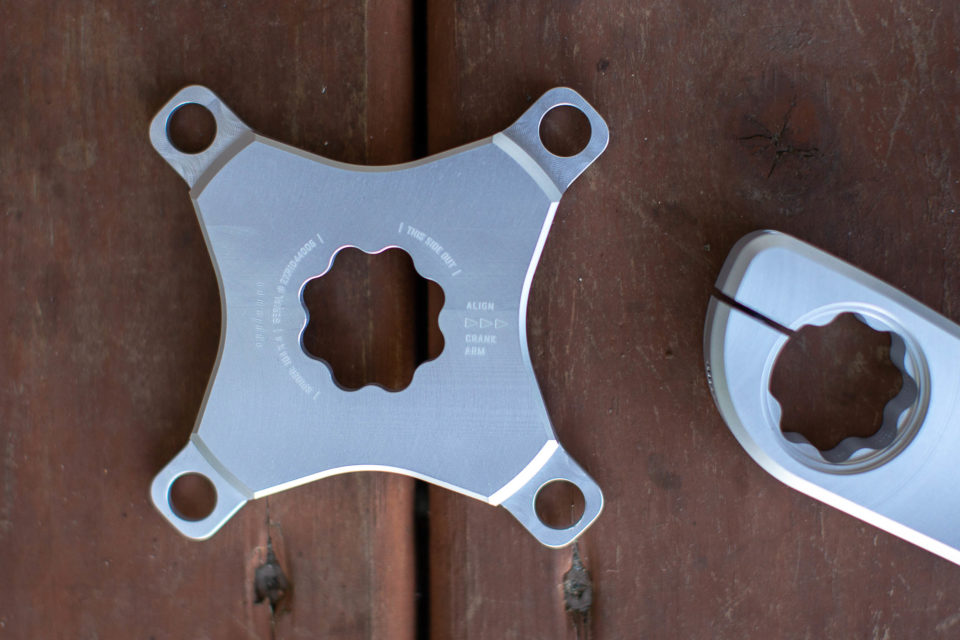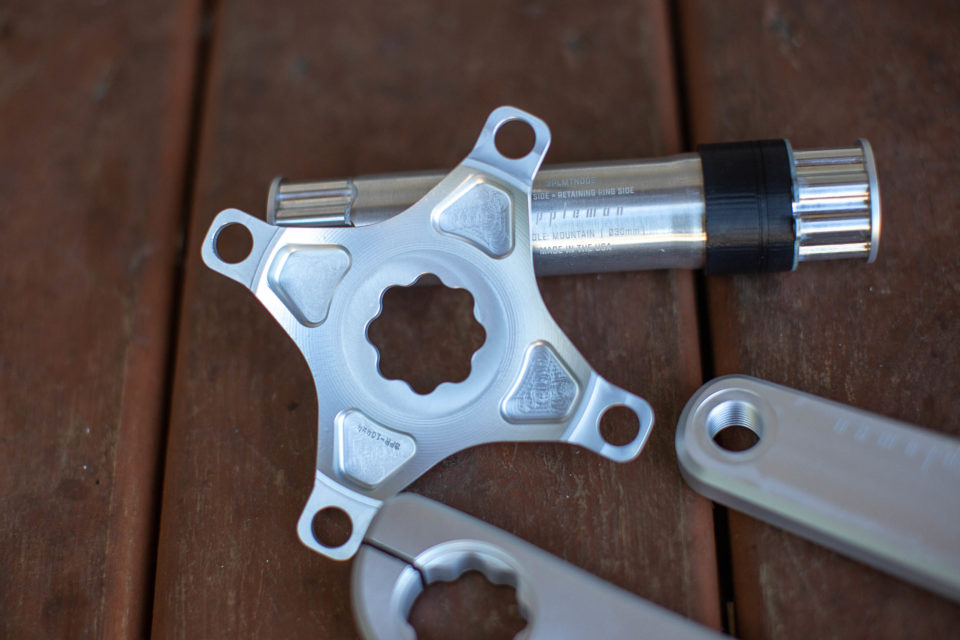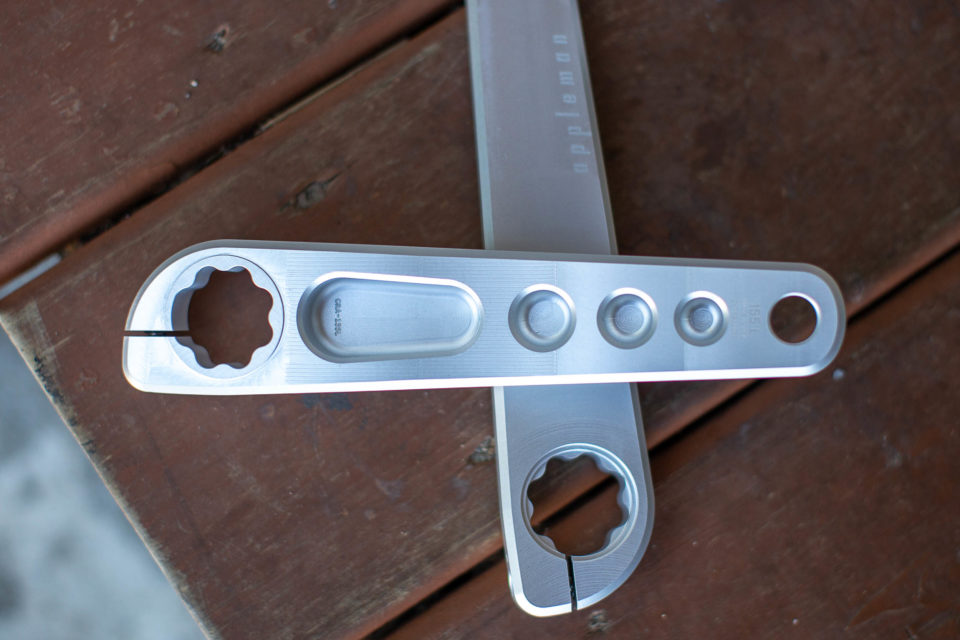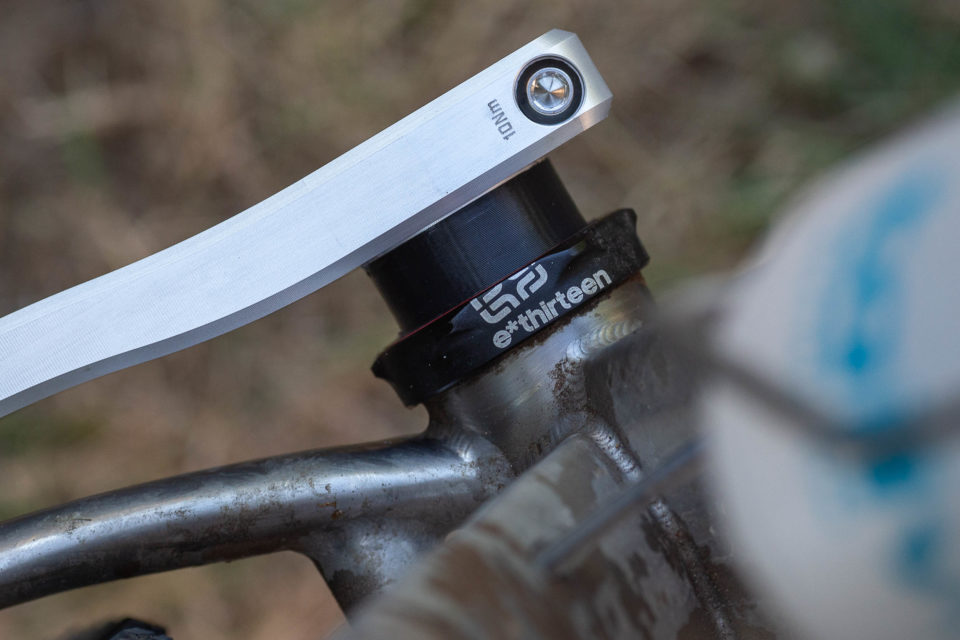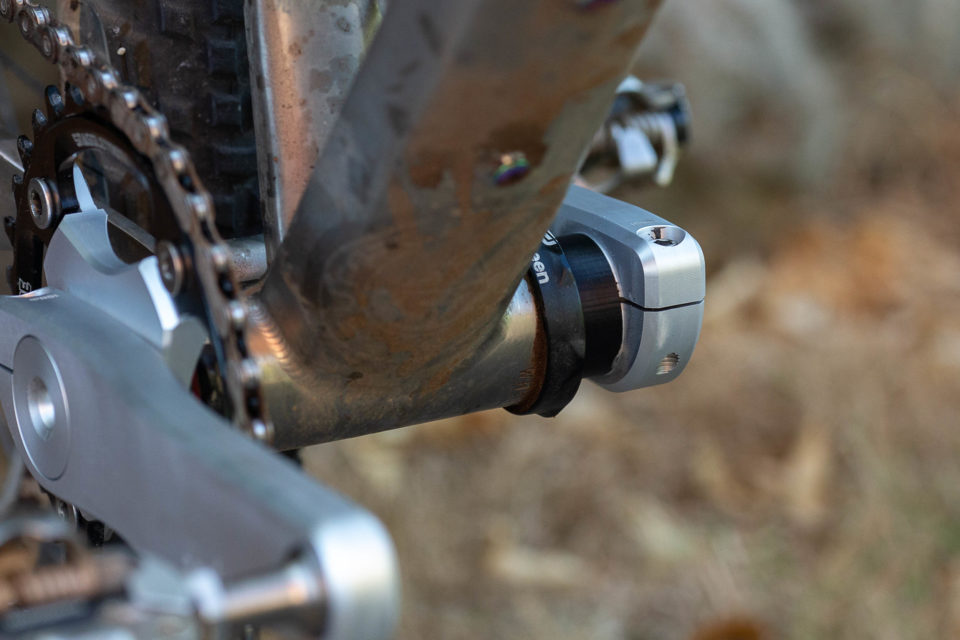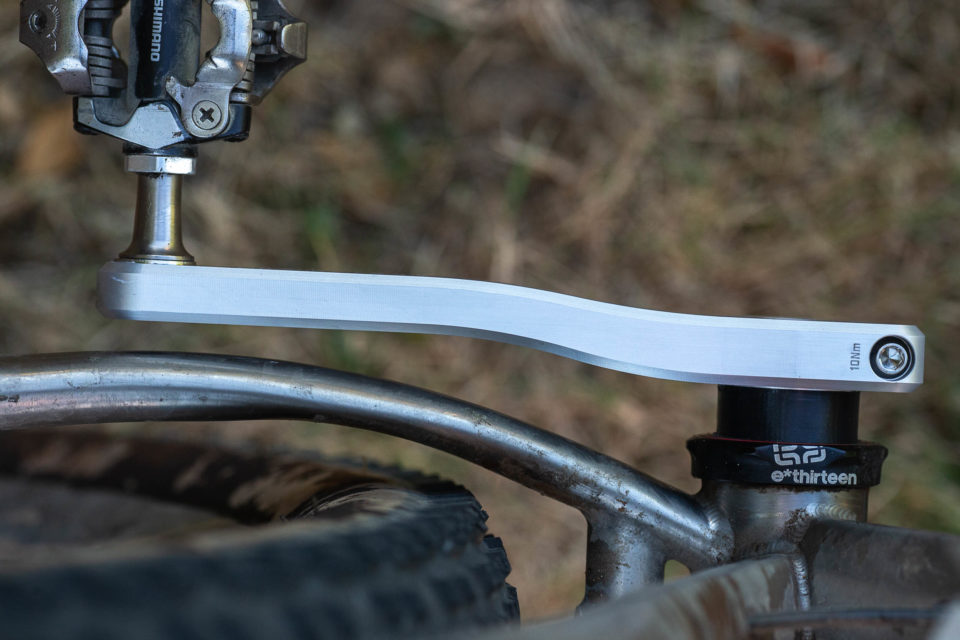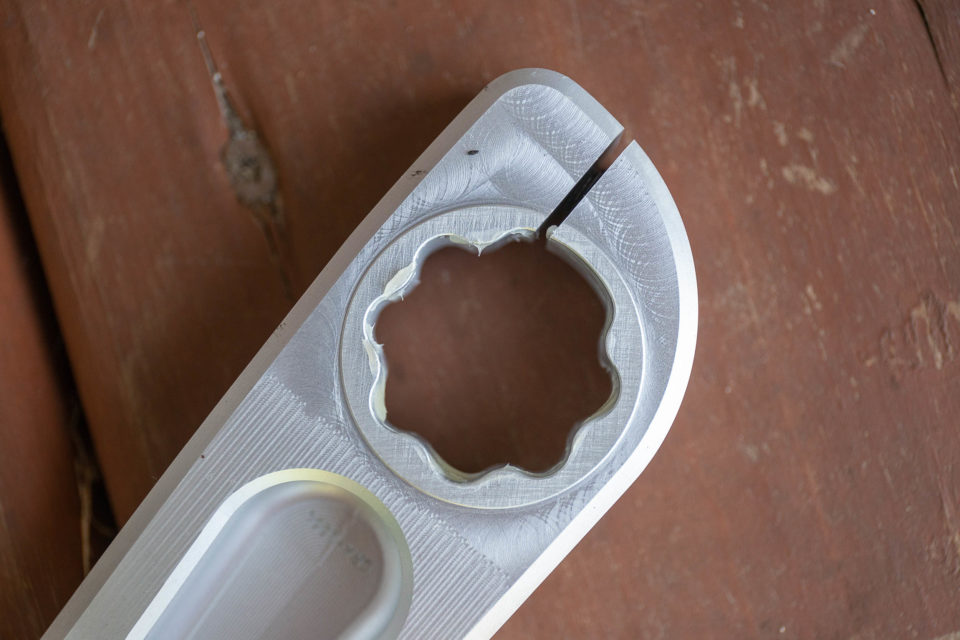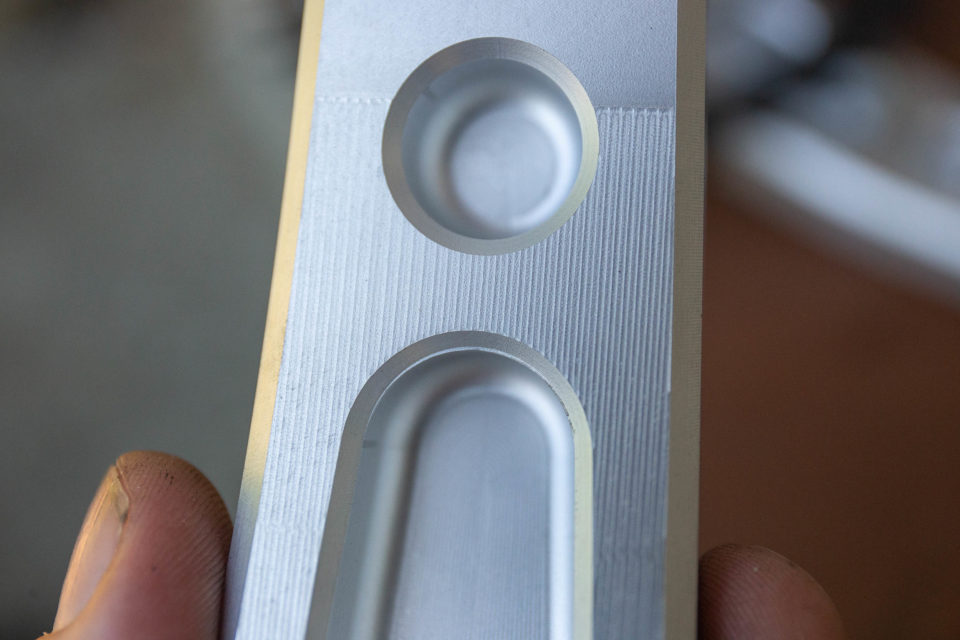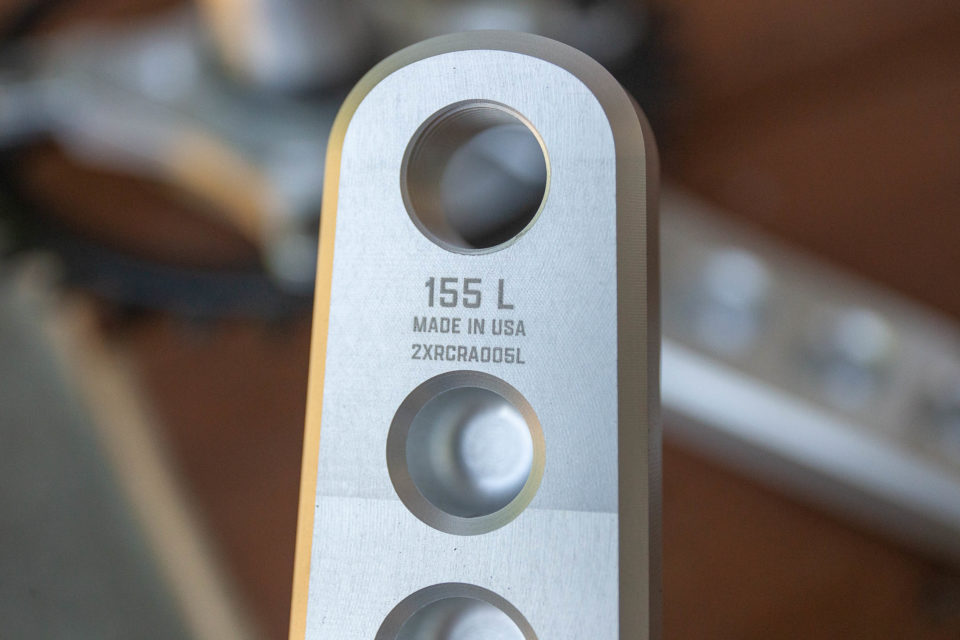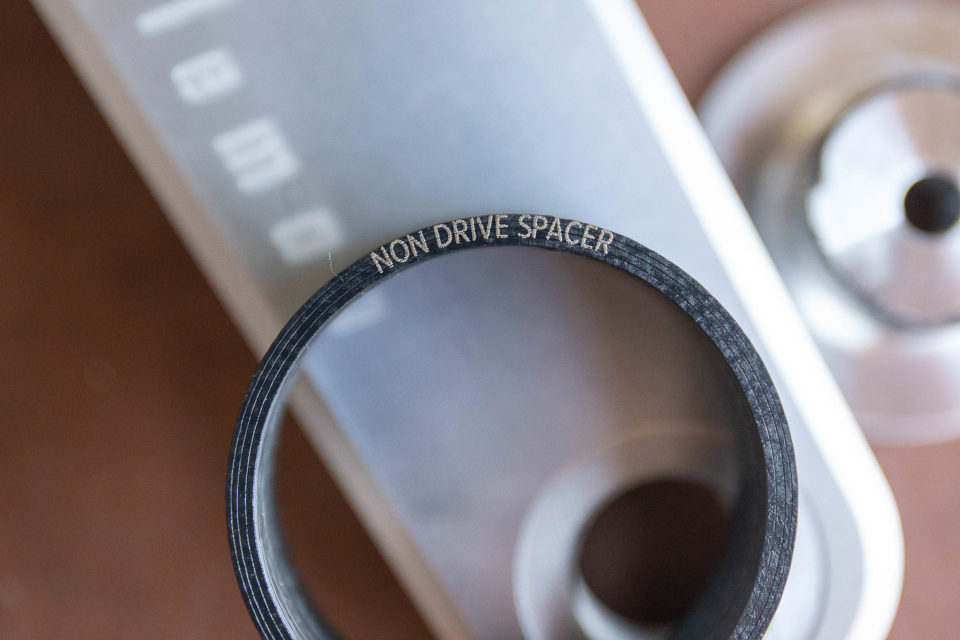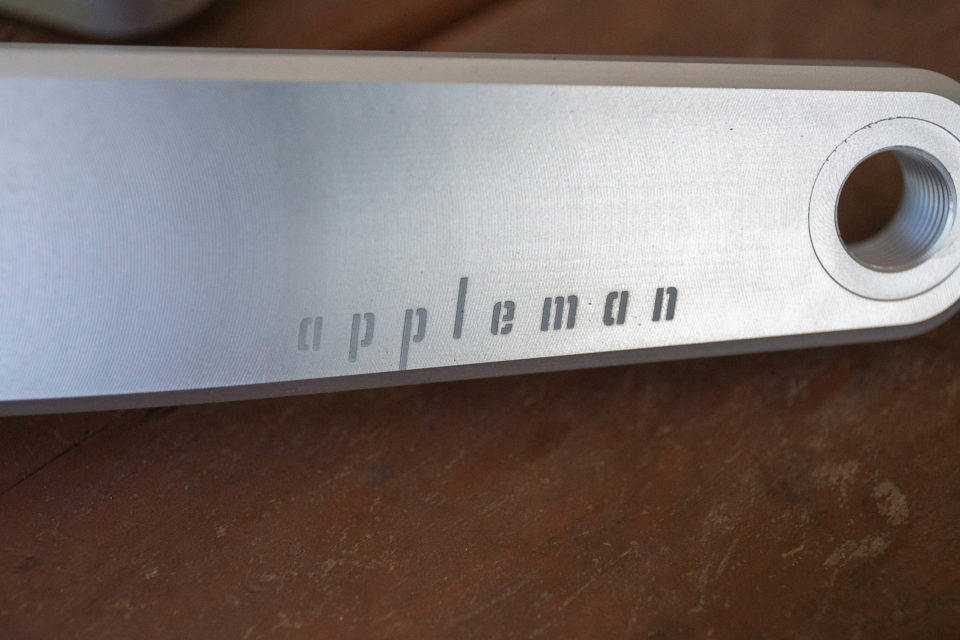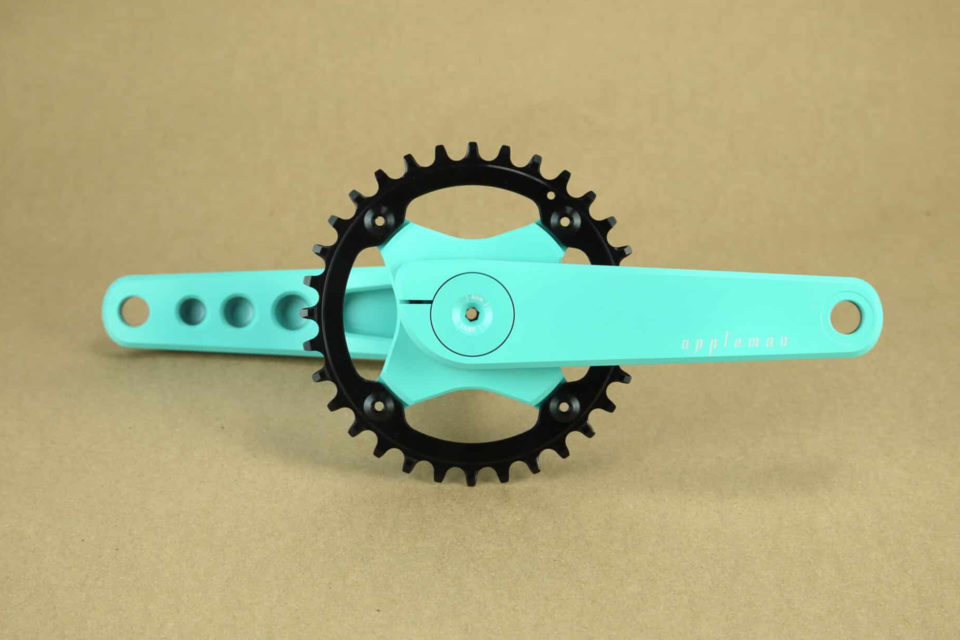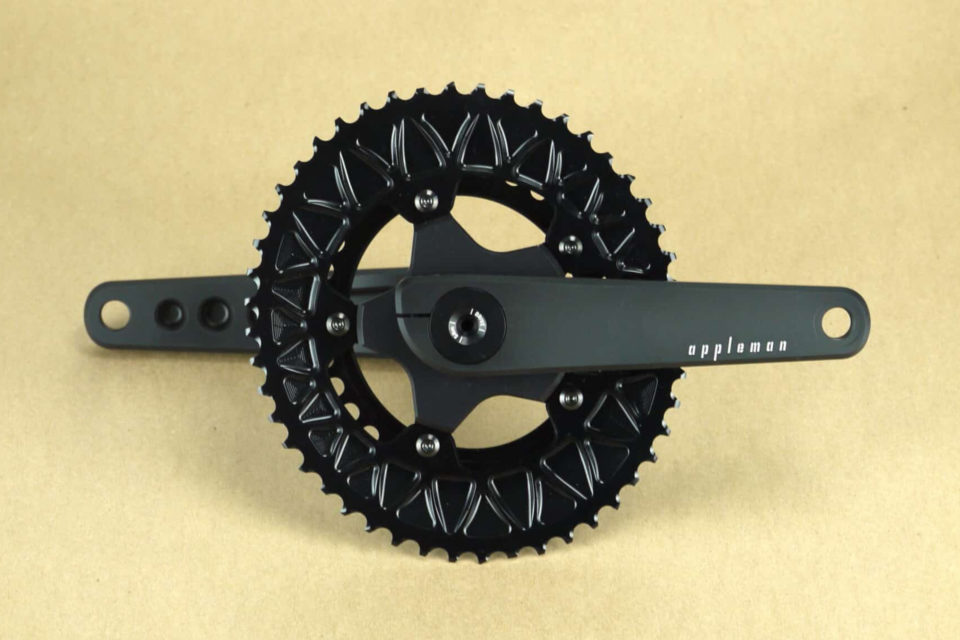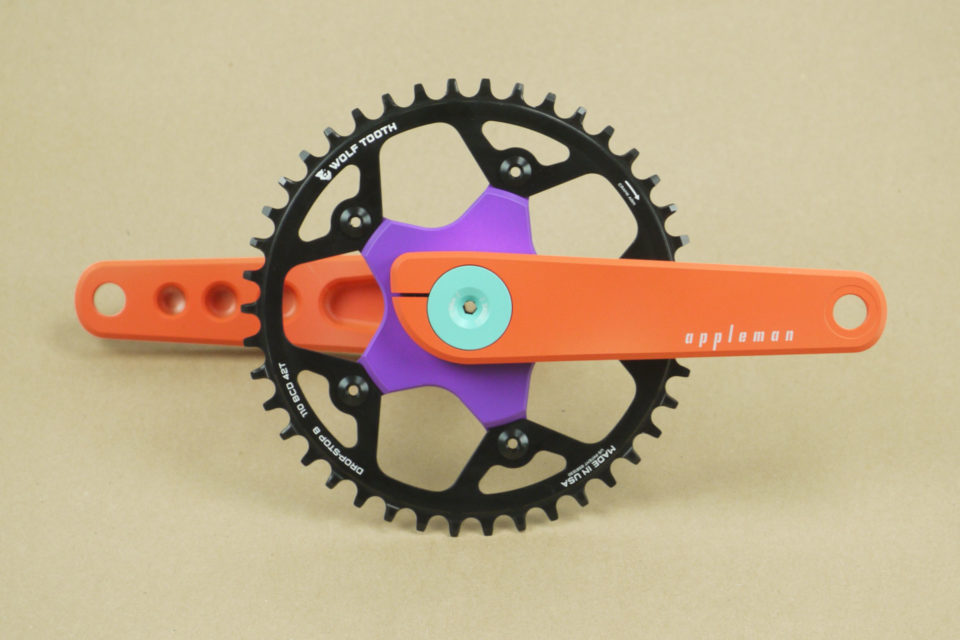Appleman Bicycles 2XR Crankset: First Look
The new Appleman Bicycles 2XR Crankset is a modular, US-made crank designed for folks struggling with fit issues. They are offered in a wide variety of lengths and are meant to be easy to service or swap between bikes. We got our hands on some for a first look to coincide with today’s launch…
PUBLISHED Sep 27, 2022
Owned and operated by Matt Appleman, Minneapolis-based Appleman Bicycles specializes in custom carbon frame manufacturing and carbon repair. With a background in road and track racing and a degree in Composite Materials Engineering, Matt launched Appleman Bicycles in 2010 and has been fabricating custom carbon bicycle frames in-house with a distinct look and high level of customization. Every aspect of an Appleman is tailored for the user.
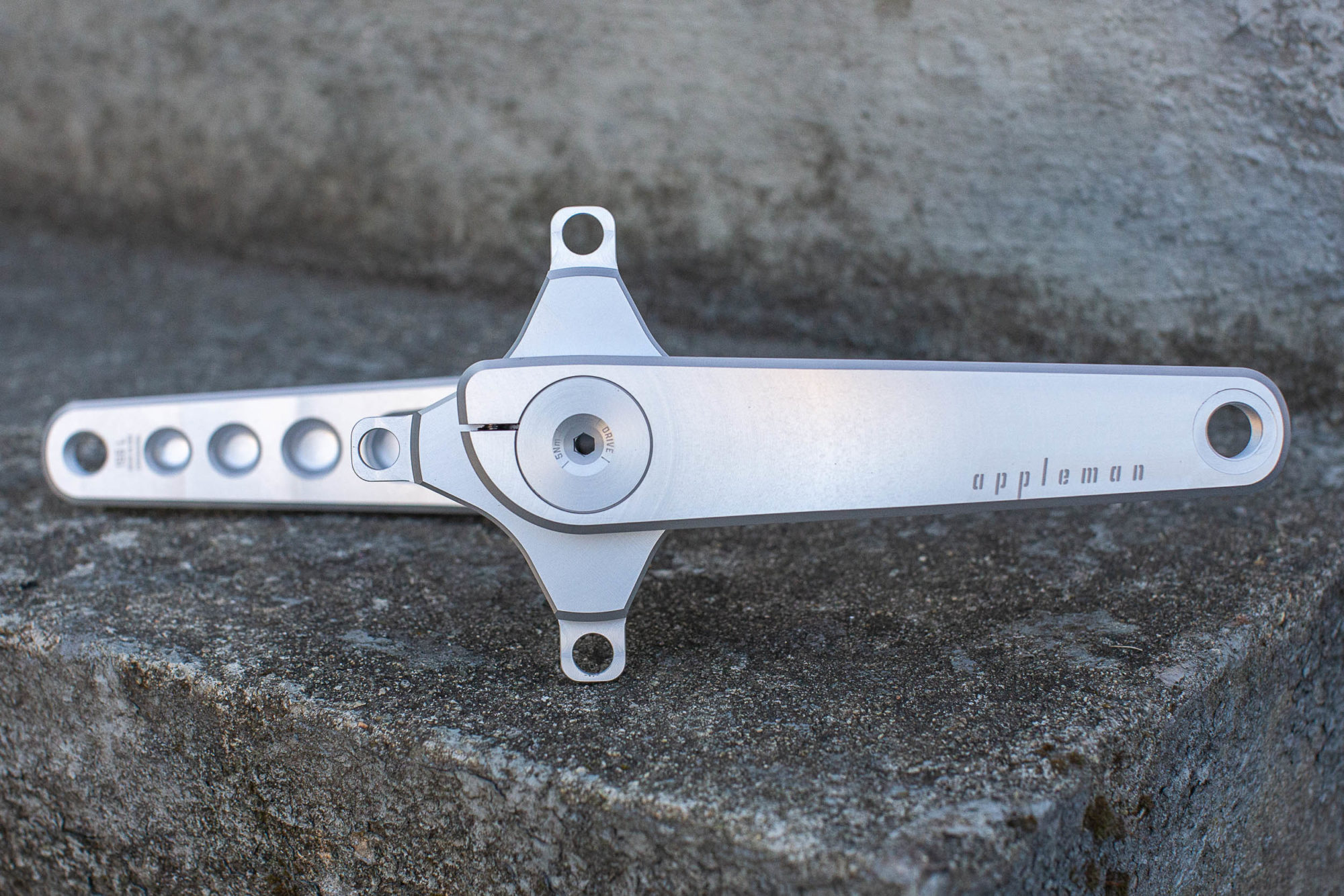
The new Appleman Bicycles 2XR Crankset is the next step in Appleman’s mission to offer a totally custom bike fit, and it addresses their vision of how components affect overall bike fit and rider comfort. According to Appleman, “The 2XR Cranks were developed to provide solutions for those struggling with fit issues on the bike or those looking to get more power and comfort from each pedal stroke. Additional aerodynamic benefits and less chance of pedal strike come from utilizing a crank tailored to your body, not pressed upon the rider by antiquated industry standards.” For Matt, the inspiration came from years of knee pain and the realization that shorter cranks were often the best solution for proper bike fit.
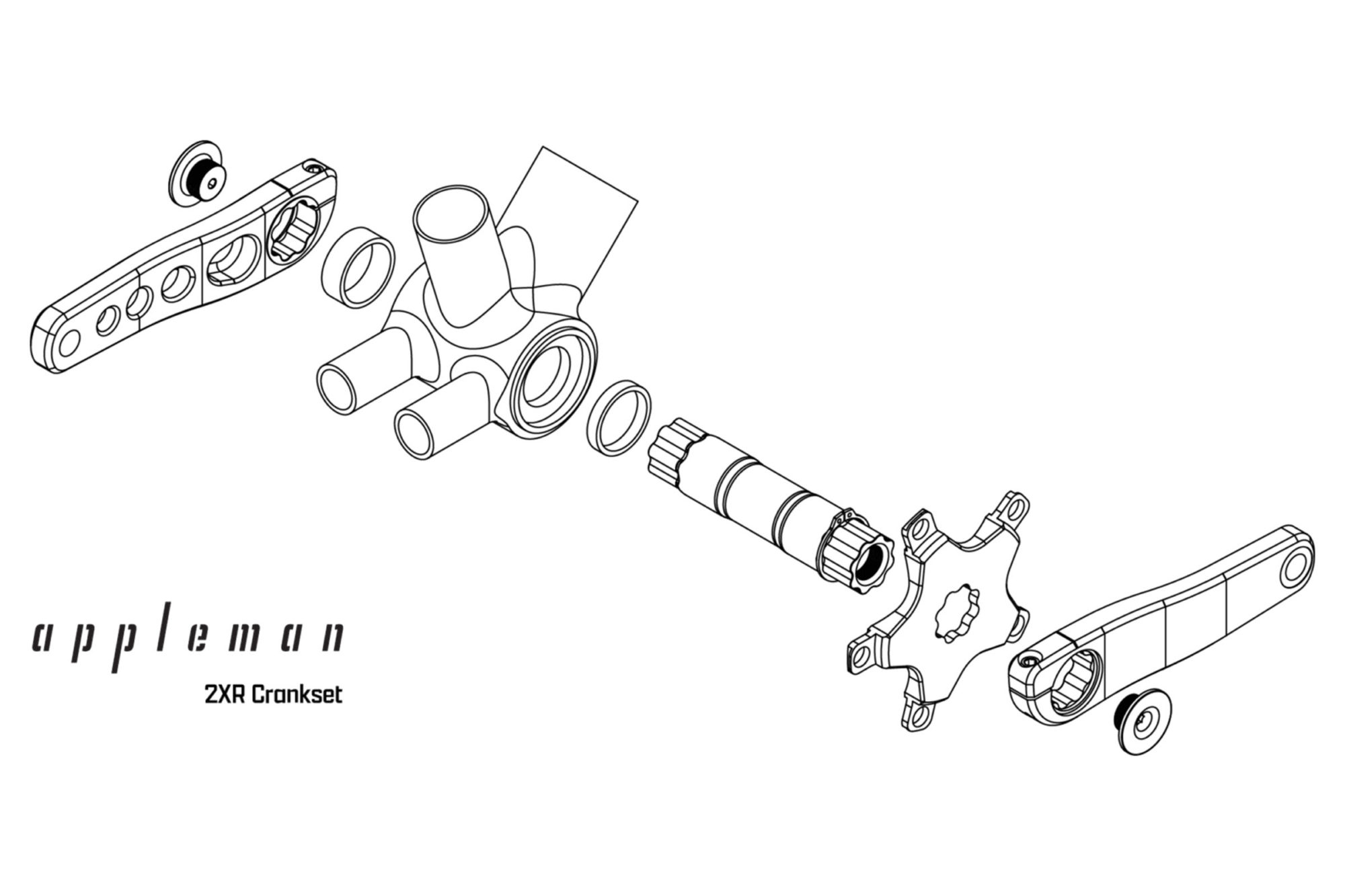
The Appleman Bicycles 2XR Crankset is designed and CNC-machined in Minnesota out of high-strength aluminum. It uses a 30mm spindle that comes in five widths for road, adventure/gravel, mountain, mid-fat, and fat bikes, as well as five crank arm lengths from 135mm to 175mm, in 10mm increments. The crank includes a standard spider that’s compatible with 4- and 5-bolt chainrings (mountain: 104×4, road: 110×5, track: 144×5) and works well with a variety of bottom bracket standards, including BSA (English threaded), ITA, PF30, BB86, BB92 BB30 T47, 386EVO, BBRight, and more.
The entire crankset is modular, meaning all 2XR parts are completely interchangeable. Each component is clearly marked with the standard and orientation for installation, and a 5mm Allen wrench is all that’s required for setup and adjustment. For most setups, the chainring can be installed on either the inner or outer position on the spider to accommodate different chainline needs. For the mountain bike spindle I received, it came with 3D printed drive-side and non-drive-side spacers, as well as a few thin shims to accommodate certain bottom bracket/hub shell pairings. On my Why S7’s 73mm threaded bottom bracket, I didn’t require any shims and simply snugged up the non-drive-side spindle bolt, torqued the crank arm pinch bolt to 10Nm, and then torqued the spindle bolt to 5Nm—all with a 5mm Allen key and all totally doable out on the trail.
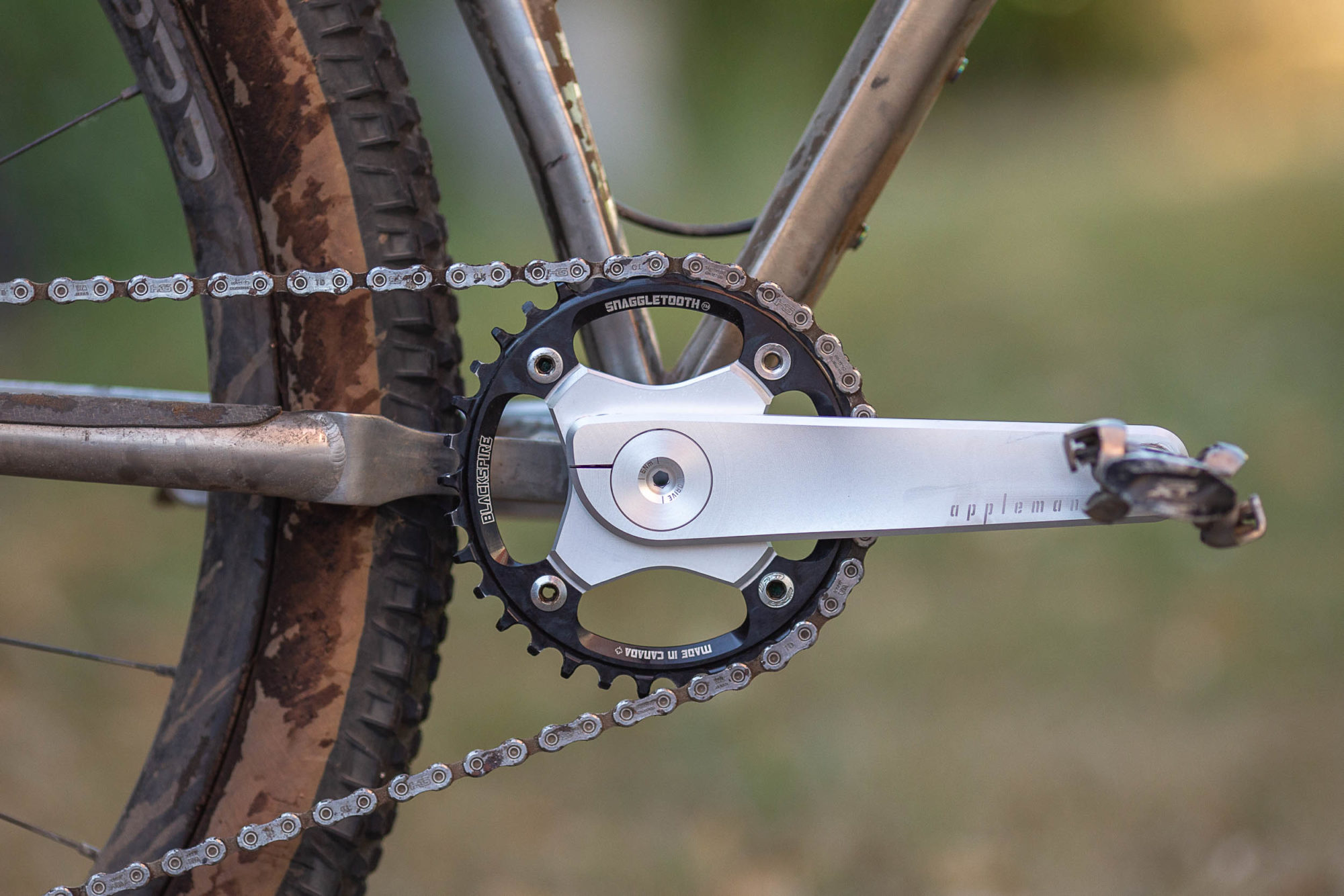
While I only just got the cranks installed and haven’t taken them on anything beyond some quick spins, they really are a work of art. They have some of the cleanest machining I’ve seen on a crankset, beveled and rounded in all the right places for a smooth and aesthetically pleasing finish. The crank arms, spider, and spindle all form a solid connection, and the oversized spindle bolts thread in smoothly and came pre-lubed from Appleman. Alongside the minimal branding and modular design, it’s easy to imagine the cranks popping up on bespoke bike builds.
Having different spindle and spider options will make them easy to swap between bikes, and so many crank arm lengths will allow folks to really dial in their bike fit. Some potential benefits of running cranks that are shorter than what might be considered normal include reduced pedal strikes, less toe overlap, and a reduced dead spot (where pedaling power is lost when sub-optimally shifting from one movement pattern to another during a pedaling stroke). Personally, I like the idea of a shorter crank, especially on bikes with low bottom brackets or when there’s not a lot of room between the front tire and my foot when making tight, awkward turns.
Not only are the cranks available in a wide range of sizes and configurations, but they also give you the option to select individual component colors at checkout. The standard black or silver parts will set you back $485, or you can choose one of eight fun anodized colors if you’re going for a specific look. Appleman allows the option to mix and match colors, so you could end up with turquoise crank arms, a purple spider, and olive spindle bolts if you so desire. Colored crank arms will set you back an additional $50, spindle bolts $25, and the spider is $25. Appleman doesn’t produce their own chainrings, but they offer compatible Wolf Tooth Components rings separately in their web store.
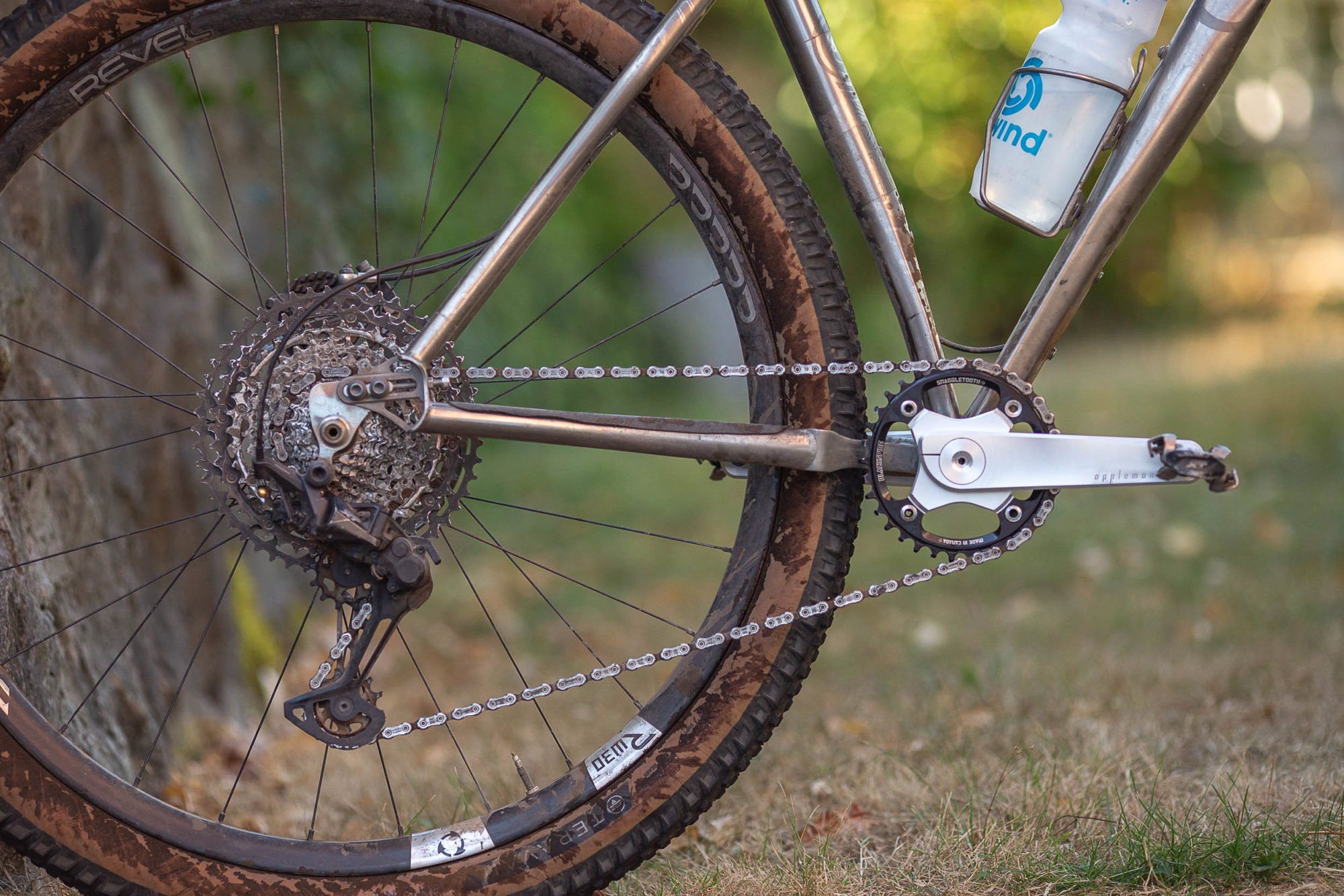
- Made of: Aluminum
- Weight: 608 grams (spindle, arms, spider, and spacers)
- Place of Manufacture: Minnesota, USA
- Price: $485 USD
- Manufacturer’s Details: ApplemanBicycles.com
Wrap Up
Since this is just a first look, I’ll keep it brief. It’s heartening to see a frame builder set out to produce a component that they believe was missing in the market. I don’t know if there are any other options quite like the 2XR Cranks out there, but they seem to provide a useful variety of options and will likely solve some fit and compatibility issues for certain riders. The price, is on the upper end of made-in-USA cranks, will probably put them beyond the reach of many people, but the quality appears to be top notch and the simple design might make it worth it for some folks. After tinkering with them for a while and installing them on a bike, I’m impressed, and I look forward to seeing how the hold up after some months of regular use.
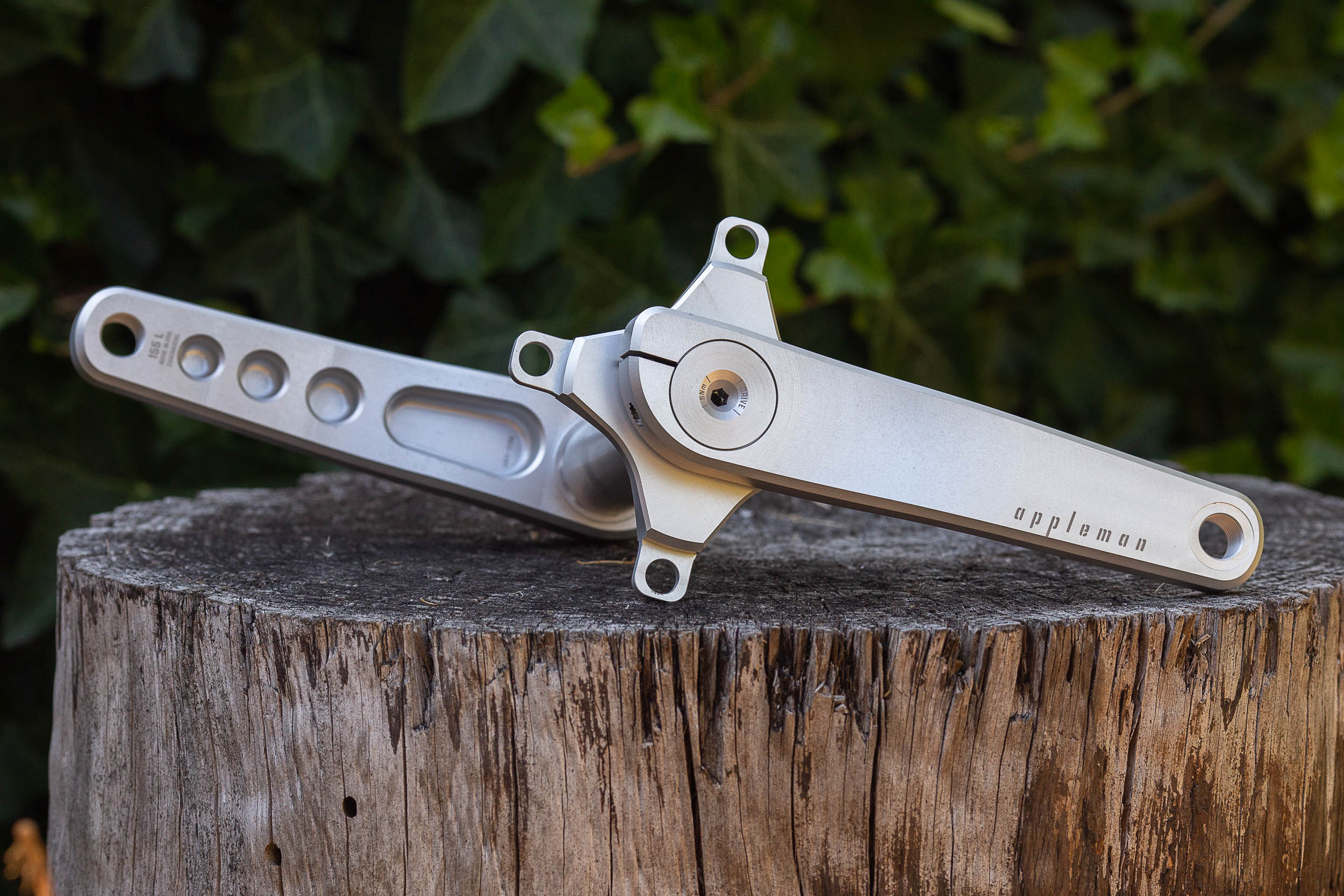
Please keep the conversation civil, constructive, and inclusive, or your comment will be removed.







